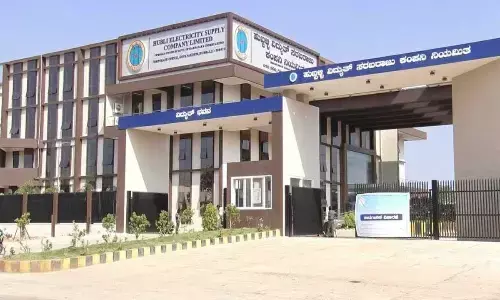No bureaucrats as CICs, please!

Without amending the Right to Information Act, it can be diluted effectively The Constitutional governance can be made ineffective by indirect methods without changing the basic structure The government of the day can devise many means to deny the people their rights which are guaranteed by the Constitution
Without amending the Right to Information Act, it can be diluted effectively. The Constitutional governance can be made ineffective by indirect methods without changing the basic structure. The government of the day can devise many means to deny the people their rights which are guaranteed by the Constitution.
For instance, leaving the vacancies unfilled is a sure way to render legislation useless. The RTI was the result of great movement and people’s agitation. The Act came with creation of independent bodies - Information Commissions to decide information disputes.
Unfortunately, hundreds of Commissioners’ posts are vacant all over India. There are only three (out of 11) Commissioners in Central Information Commission. In Telangana vacancies are nine, while in Andhra Pradesh, seven Commissioners and post of Chief State Information Commission are vacant. It will have a serious adverse impact on right of the people to demand the information from the public authorities. In this background the author discussed the issues involved in appointment and non-appointment of the Commissioners in a letter written to the President of India. Following is the text.
Your Excellency,
I, M. Sridhar Acharyulu, would like to bring following points for your Excellency’s kind consideration and necessary advice/recommendation to the Government of India and Selection Committee under RTI Act to select Chief Information Commissioner and Information Commissioners.
The Chief Information Commissioner Shri Radha Krishna Mathur, and three Commissioners – undersigned, Shri Yashovardhan Azad and Shri A Bhattacharyya have retired in the last week of November 2018. Now there are eight vacancies in Central Information Commission (Chief IC plus 7 ICs).
The Government of India should have completed process of appointing the Chief Information Commissioner before the retirement of Shri Radha Krishna Mathur to be ready to take over the administration of the Commission without any gap, because the RTI Act has not envisaged any vacancy in that high position at any point of the time.
The Commission has experienced absence of administration for several months as the Government did not appoint Chief Information Commissioner, three years ago, after retirement of the then Chief. Unfortunately now also that position is left vacant since 22nd November 2018. Similarly leaving seven positions of CICs also will lead to increase in the pendency of second appeals/complaints. The delay in information amounts to denial of information and delay in information justice also means its denial.
Fortunately, the government has committed itself to decide on vacancies, before the Public Interest Litigation for appointment of Commissioners comes up for hearing on 13th December 2018. The media reported that the government would convene meeting (probably on 11th December 2018) of the Selection Committee consisting of the Prime Minister, one Cabinet Minister and the Leader of the Opposition to select the Commissioners as envisaged by RTI Act. It’s great news indeed.
I would like produce the text of Section 12(5) of RTI Act 2005 for ready reference, at this juncture:
The Chief Information Commissioner and Information Commissioners shall be persons of eminence in public life with wide knowledge and experience in law, science and technology, social service, management, journalism, mass media or administration and governance. In this context, as a person who worked as Central Information Commissioner for five years till recently, I request your Excellency to consider following suggestions:
1.As the Chief Information Commissioner in all these 13 years was selected from the field of Administration only, at least, this time an eminent person from the field other than Administration may be selected; and if for any reason, the government decides to select a retired bureaucrat once again, it should ensure that he had credentials of integrity, commitment towards transparency and has never supported or promoted any kind of secrecy in administration. The people have a right to know this kind of background of the Chief and other Commissioners. The Government should also commit itself to appoint next Chief Information Commission from other than bureaucrats.
2.As mandated by Section 12(5) of the RTI Act, the Government of India has a statutory duty to select at least one person of eminence each in public life with wide knowledge and experience from the fields of (1) law, (2) science, (3) technology, (4) social service, (5) management, (6) journalism, and (7) mass media. As the government has already appointed three eminent persons with experience in administration, who are working now, the Committee, as a principle, should not consider the persons from this field for this time.
3.Whenever the Selection Committee convenes, from now onwards, it shall select one eminent person of experience each from these fields necessarily for making the Central Information Commission representative of multiple fields of public activity and truly democratic. With experts from various fields, there will be no scope for bureaucratic majority or domination in its administration besides accommodating different view-points. If the government selects more number of former bureaucrats for these posts, it will in breach of letter and spirit of transparency law and more particularly that of Section 12(5) of RTI Act, which may not stand the scrutiny by the Judiciary.
4.The Selection Committee should also ensure that the new Commissioners appointed shall have the complete independence with regard to the term, status and salary as provided by the RTI Act. Their term, status and salary shall not be ‘as prescribed’ by the Central government’ as contemplated by the present government in the proposed Amendment to RTI Act.
5.The Government shall ensure that it will not interfere in the functioning of Central Information Commission and also to insulate the office of Chief Information Commissioner or individual commissioner from direct or indirect pressures or interferences from any of its offices such as PMO or the Ministry of DoPT.
6.The Government shall not introduce the RTI (Amendment) Bill, 2018 and shelve it permanently, in the interest of transparency of administration and good governance.
7.Hereafter, the government shall fill every vacancy promptly so that a new Chief/Commissioner takes over the charge from the retiring Commissioner without any gap.
Your Excellency, the nation looks up to you with a fond hope to strengthen the Right to Information Act by appointing right persons to the CIC from fields prescribed in that statute, besides protecting the Right to Information Act from the attempts to dilute it by undesirable amendment and also from tactics like starving by non-appointment or filling it with majority of former bureaucrats.
Thanking the Excellency in advance.
Yours sincerely
(M Sridhar Acharyulu)
Copy of this letter is sent to
(i) the Prime Minister [email protected] and [email protected] and (ii) the Leader of the Opposition [email protected] and [email protected], for kind consideration of the above suggestions.










